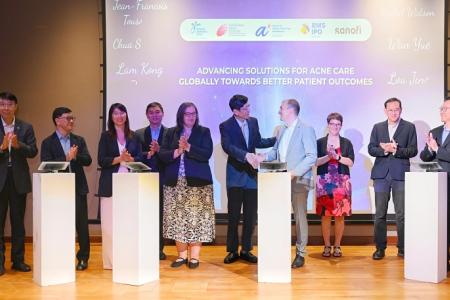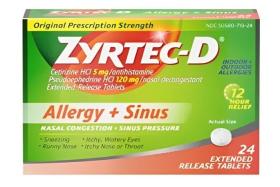Acne vaccine clinical trials to be held here
Some people in Singapore will be among the earliest in the world to find out the effectiveness of an acne vaccine that French pharmaceutical giant Sanofi has developed. It is the first vaccine of its kind.
The company signed a memorandum of understanding (MOU) on Nov 22 with A*Star and the National Skin Centre (NSC) to conduct research as well as an early stage clinical trial of the vaccine in patients with mild acne.
About 200 people with the condition will be recruited for the trial, which will start in 2025.
Another trial for the vaccine – for people suffering from severe acne – has started in the United States.
The vaccine has been developed to reduce the severity of acne, a common skin condition that affects roughly eight in 10 teenagers, and possibly even cure patients.
Aside from the clinical trial with the skin centre, Sanofi will also be working with A*Star on research into skin problems.
Professor Tan Chorh Chuan, who chairs both A*Star and the Ministry of Health’s Office for Healthcare Transformation, said at the MOU signing ceremony: “Singapore is uniquely positioned, we think, to lead research in Asian specific skin conditions because of our diverse, multiracial population.
“So this generally allows us to generate insights and make discoveries that are relevant to our region, but also contribute to global understanding of skin health.”
The three partners will pursue innovative research to develop comprehensive treatments that support the well-being of patients, he added.
Acne is a chronic inflammatory skin condition where the pores of the skin are clogged with sebum, an oil that keeps the skin from drying out, and dead skin cells. It usually affects people between the ages of 10 and 24 years, but could remain a problem for some into their 40s or 50s.
It is the second most common problem treated at the NSC, after eczema. It can lead to scarring, low-self esteem and depression.
Dr Hazel Oon, who runs the NSC’s Acne Clinic, said: “Very recently, I’ve had a patient with adult acne cry on my table because it’s so distressing to have this condition.”
She said acne is not just disfiguring, it could also be painful and cause lesions that need to be drained. They do not just appear on the face, but could be in uncomfortable areas like the armpits and buttocks.
She hopes that the collaboration with Sanofi and A*Star will result in “tackling acne from its pathogenesis to the clinical presentations and we can come closer to the Holy Grail – to find a cure for acne.”
Mr Jean-Francois Toussaint, Sanofi’s global head for vaccine research and development, said the acne vaccine is one of 12 vaccines the company is concentrating on “because the burden of acne is huge”. An estimated 240 million people in the world suffer from it.
Ranked sixth globally with sales exceeding US$47 billion (S$63.1 billion) in 2023, Sanofi is one of the top pharmaceutical companies in the world. It is a forerunner in vaccines, with more than 500 million people getting its vaccines annually.
Mr Toussaint would not say how much Sanofi is investing in the development of the acne vaccine, except that the amount is “significant”. Sanofi spends about €7 billion ($9.86 billion) a year on research for both pharmaceuticals and vaccines.
Associate Professor Chua Sze Hon, NSC executive director, said the clinical trial will help to generate valuable data on the disease and its treatment.
“The translational study will explore the role of skin bacteria and biological responses in acne progression, paving the way for targeted biologics in future acne treatments.”
Get The New Paper on your phone with the free TNP app. Download from the Apple App Store or Google Play Store now


